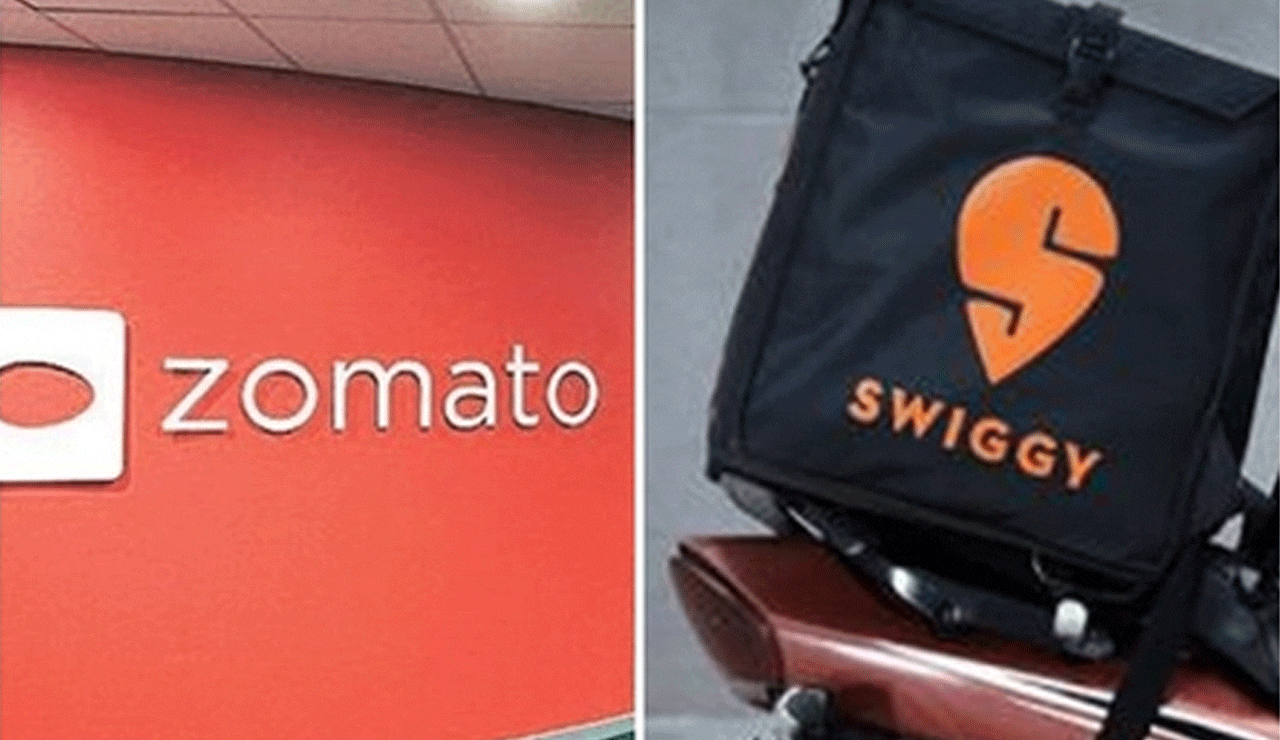Bank of America Downgrades Zomato and Swiggy Amid Slowing Growth and Rising Competition
Bank of America (BofA) has downgraded its ratings for the popular food delivery platforms Zomato and Swiggy, citing concerns over slowing growth and rising competition in the quick-commerce sector.

Mumbai: Bank of America (BofA) has downgraded its ratings for the popular food delivery platforms Zomato and Swiggy, citing concerns over slowing growth and rising competition in the quick-commerce sector.
Zomato and Swiggy Downgraded by BofA
BofA has reduced Zomato’s rating from ‘buy’ to ‘neutral’, and Swiggy’s rating from ‘buy’ to ‘underperform’, signaling cautious outlooks for both companies. Along with the rating downgrade, the target prices for these platforms have also been revised.
Also Read: Prithviraj Sukumaran Hails Technicians: “They Are Superstars”
- Zomato’s target price has been reduced from Rs 300 to Rs 250.
- Swiggy has seen a more significant drop in its target price from Rs 420 to Rs 325.
Despite these changes, BofA analysts remain optimistic about the medium-term prospects of both platforms, albeit with caution due to rising challenges in the market.
Slow Growth and Increased Competition in Quick Commerce
According to BofA, the quick-commerce industry, previously viewed as a rapidly growing sector with improving profits, is now experiencing rising losses and intensified competition. The report highlights that the once-thriving segment is facing challenges, including increasing operational costs, higher competition, and shrinking profit margins.
BofA analysts believe that competition in the market will only escalate in the coming months, driven by both new market entrants and established players expanding into each other’s territories. New competitors are likely to drive customer acquisition with aggressive discounts and marketing expenses, further complicating the environment for established companies like Zomato and Swiggy.
Zomato’s Stronger Position in Quick Commerce
Despite the challenges in the quick-commerce industry, BofA believes that Zomato is better positioned compared to Swiggy. Zomato is recognized for its scale, first-mover advantage, and stronger financials. It also boasts better profit margins and a healthier cash position than Swiggy, which has been grappling with higher losses in the quick-commerce segment.
While Zomato may be better placed in the short term, the company still faces several hurdles, including high marketing expenses and operating costs tied to the expansion of dark stores and wages.
Rising Operating Costs and Financial Strain
Both Zomato and Swiggy are expected to face rising operating costs, particularly due to higher rental expenses for dark stores and increased wages. BofA does not expect the companies to increase platform fees significantly in the near term as growth slows down. Additionally, both companies are investing in in-house 10-minute cafe services, which are expected to increase their operational expenses slightly.
BofA also noted that while food delivery has traditionally been a stable source of revenue for both companies, profits from food delivery are now being used to cover losses in quick commerce.
Stock Performance and Market Outlook
Over the past 12 months, Zomato’s stock has gained 11.66% but has fallen by 26.6% this year. Swiggy has also experienced a 38.3% decline in stock value so far in 2025.
While both platforms are facing a challenging landscape with increasing competition and higher costs, BofA’s analysts remain hopeful that the companies may recover in the medium term as they adapt to changing market dynamics.
